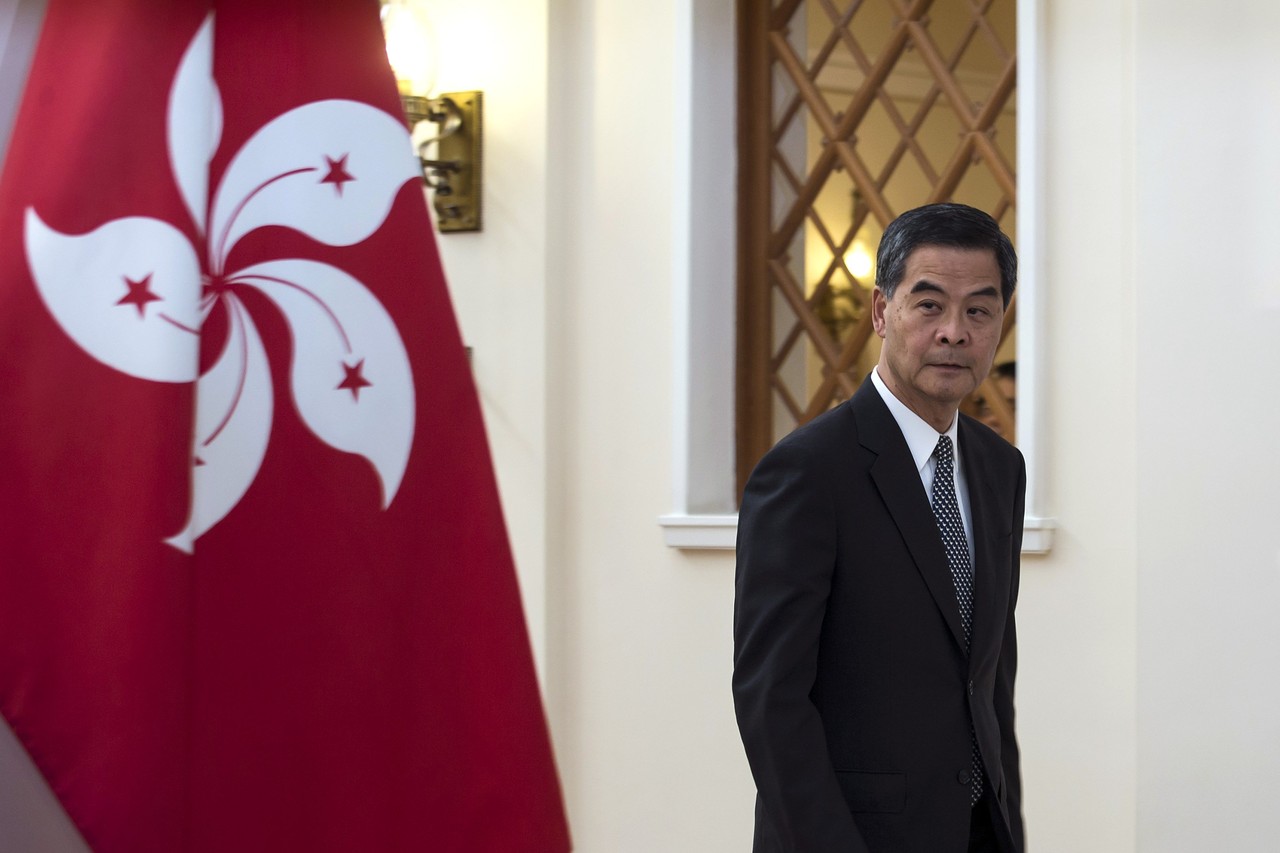
Hong Kong's chief executive, Leung Chun-ying, announced that he is ready to begin negotiations with pro-democracy demonstrators who have blocked city streets and scuffled with police for nearly three weeks.
Government officials have already begun talking with students through middlemen over the past few days, and hope to discuss democratic reform within the next week.
"As long as students or other sectors in Hong Kong are prepared to focus on this issue, yes we are ready, we are prepared to start the dialogue," Leung told reporters, adding that middlemen, whom he did not identify, had been in touch with student protest leaders to convey the government's wishes.
The announcement came mere hours after a group of police officers were caught on camera early Wednesday apparently beating a protester with his hands cuffed behind his back. The seven officers, who have been suspended, were among hundreds of others using pepper spray and batons against activists in an attempt to regain control of a busy road next to city government headquarters and near the protesters' main occupation zone, reports the Washington Post.
If the negotiations are to occur, Leung stressed, the civil disobedience from protesters "cannot go on indefinitely."
"Going forward, we cannot allow the occupying of streets to have a negative impact on Hong Kong society. Police will use appropriate methods to deal with this problem," he said.
However, police brutality has only caused protesters to become more vocal.
Wednesday night, Cannes film festival best actress Deanie Ip visited Admiralty along with several others to support student protesters. "Suddenly, I no longer trust the police to leave protesters in peace," she told the South China Morning Post.
"We heard that there were fewer and fewer people coming here. So, it sounded a bit dangerous to let that happen," said 23 year old Priscilla Chung, adding that each occupied area is, in her opinion, "a bargaining chip" that should be protected.
Since September 28, the protesters have taken over major roads and streets in business and shopping districts across the city, demanding an open election for the Chinese city's leader, promised for 2017.
China has said the election will be open to all voters for the first time in Hong Kong's history, but the choices on the ballot will be limited to those approved by Beijing. Among the qualifications: The candidates must "love China."
While Beijing's decision will not change, said Leung, it may be open to negotiating how the committee that nominates candidates is formed.
"Politics is the art of the possible, and let me draw a line between the possible and the impossible," Leung said, "The central authority has said clearly that it will not retract the decision."
"The most constructive thing the Hong Kong government can offer the students is sit down and listen to the students about what we can do together within the framework" of Beijing's election rules," he concluded.
















